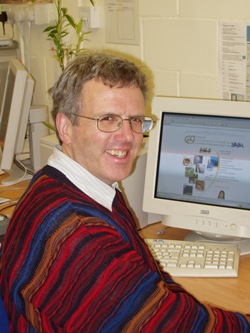
David Manning, Professional Secretary, explains a revolution on the way to becoming Chartered…
Geoscientist 18.9 September 2008
About a quarter of the Society’s 10,000 members are Chartered Geologists, and work mostly in the engineering geology, hydrogeology and environmental geology sectors. The vast majority of the Fellowship works in industry, and the Society has an important role as a professional body. But to strengthen the Society’s voice in representing and serving the profession, we need to see future growth in the proportion of Fellows becoming Chartered Geologists.
Those of us who have been closely involved with the Chartership process will know that the system worked well, for the vast majority of applicants, on a fairly informal basis in terms of its structure and processes. Once an application was received, Scrutineers were appointed, an interview was held, and a report made to the Fellowship and Validation Committee prior to a final decision being made. But this system has not always worked as well as it might.
Professional Committee has now developed a new process for Chartership, which will start on 1 January 2009.
- In accordance with the Society’s Code of Practice, candidates for CGeol will define the area of expertise within which they practice the profession. It will be up to the candidate to provide the evidence that their claim for competence is justified against the updated set of criteria for Chartership
- Applications will be scrutinised by experienced CCeols with expertise that matches that claimed by the applicant. Applications for CSci will be scrutinised using the same process as CGeol, and will be assessed by Scrutineers with experience of the professional sector of the applicant.
- All candidates will be interviewed at specific centres on certain dates within the year. Applicants will state, when they apply, where and when they would like to be interviewed.
There will be changes in the way in which the process is administered within the Society. The Fellowship and Validation Committee will be lreplaced by a Chartership Panel comprising Chartered Geologists with experience of scrutineering, reporting directly to the Professional Committee. An Appeals Advisory Panel (Executive Secretary, Professional Committee Chair, Accreditation Panel Chair) will report directly to Council, and a completely independent Chartership Audit Panel (three senior Chartered Geologists who are also experienced Scrutineers), will carry out an audit process at the request of and reporting to Council. A Chartership Officer, similar to the existing Accreditation Officer, will be appointed towards the end of the year to help co-ordinate the future applications.
In practice, what will this mean for Fellows? The process will be much more dynamic, with set points in the year when members of the Chartership Panel and Scrutineers descend on a specific location to devote a full day to processing applicants. Applicants will know in advance when a decision will be made concerning their application.
We will need more Scrutineers, to ensure availability to match the calendar of interview dates, and to cover an increasingly diverse spectrum of competences. We will be calling for more volunteers to act as Scrutineers during the Autumn. The role of Scrutineers is vital to the correct functioning of the whole process, and we will want Chartered Geologists who are in senior positions in their employment to encourage their employers or companies to support staff who take on this role.
Those whose applications are presently in progress will be ‘processed’ according to the existing system, but there will undoubtedly be some overlap between the two processes during the early part of 2009.